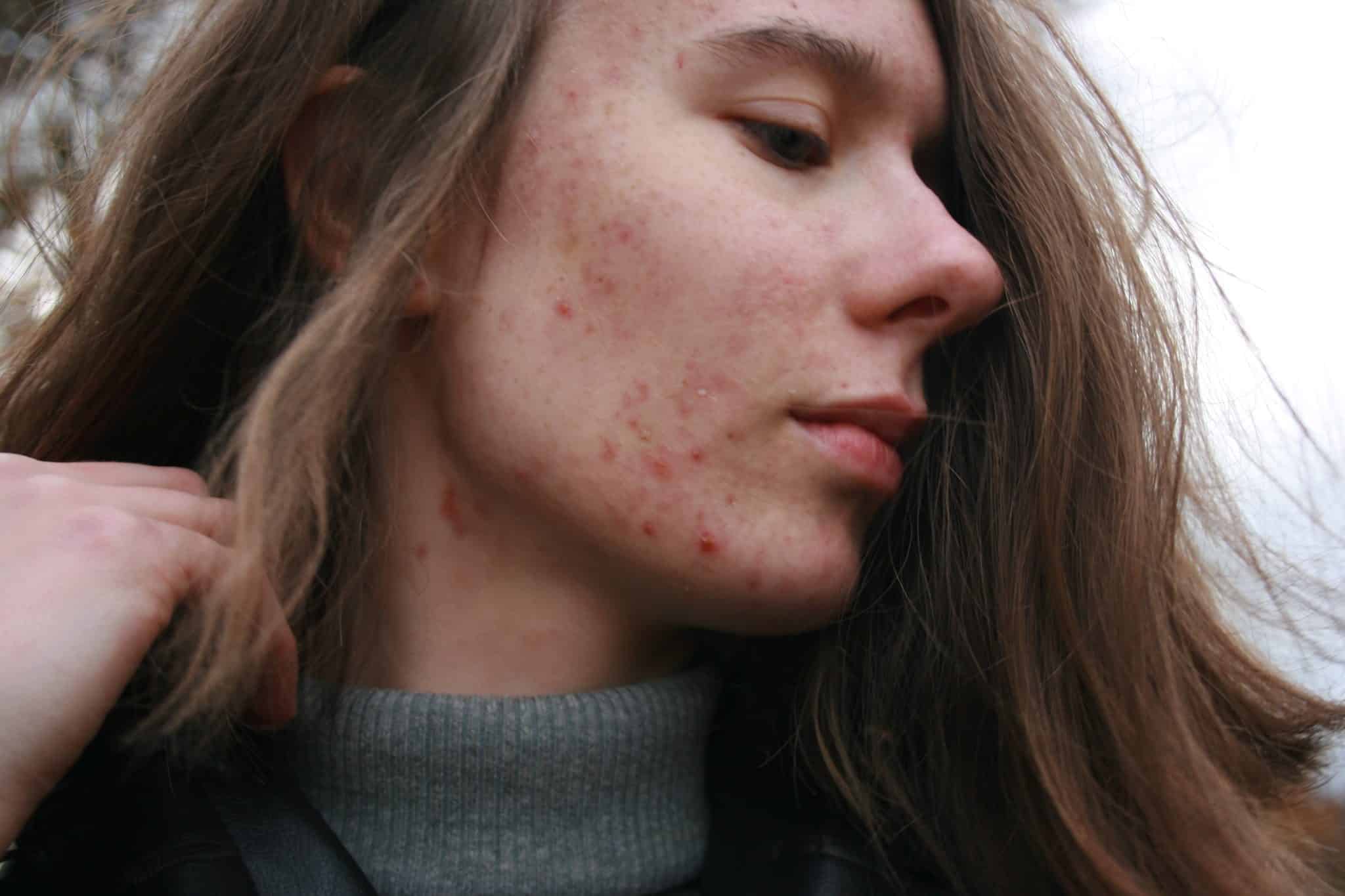There are numerous bodily difficulties to be on the lookout for if your face changes. These four changes may indicate an underlying, undiagnosed medical ailment if you experience them. For your own wellbeing, remain vigilant and proactive.
1. Eyebrow thinning

According to Livestrong.com, medical conditions like hypothyroidism and atopic dermatitis can contribute to thinning eyebrows. A thyroid gland that is underactive, or hypothyroidism, can cause general hair thinning. Additionally, atopic dermatitis, a skin disease that affects 20% of the population, may be a factor in eyebrow loss.
2. Intense acne and unusual hair

It’s normally okay to have peach fuzz and minor acne. But if you have a lot of facial hair or severe acne, you might have a health problem. It can be a sign of PCOS, a condition marked by irregular periods, obesity, infertility, and abnormal hair growth. As soon as you notice these symptoms, call your doctor.
3. Red rashes and bumps
A red rash on your face or neck could be a sign of autoimmune diseases like lupus or celiac disease or digestive problems. Keep up with these possible health issues.
4. Under-eye circles

Pay special attention if there are any changes, but occasional under-eye circles brought on by insufficient sleep are typical. It could be an indication of Dermatomyositis, an autoimmune condition that causes muscular pain and weakness, if it is accompanied by red or black spots. Consult a doctor right away if you see any of these symptoms.
Have any of these face changes ever happened to you? Tell us about your experience.
5. Yellowish Skin or Eyes
If you notice a yellowish tint in your skin or the whites of your eyes, it could be a sign of jaundice, which is often linked to liver issues such as hepatitis, gallbladder disease, or pancreatic disorders. Jaundice occurs when there’s a buildup of bilirubin, a waste product in the blood, indicating potential liver dysfunction.
Other symptoms to watch for include fatigue, dark urine, and abdominal pain. If you experience these changes, seeking medical advice promptly is crucial to addressing any underlying liver conditions.
6. Persistent Dry or Flaky Skin
Dry, flaky skin that doesn’t improve with regular moisturizing could indicate more than just dehydration. Conditions such as eczema, psoriasis, or even nutritional deficiencies (like a lack of vitamin A or essential fatty acids) might be to blame.
In some cases, chronic dry skin can also be linked to diabetes, as high blood sugar levels can lead to dehydration and affect skin health. Keeping an eye on additional symptoms like excessive thirst, frequent urination, and unexplained weight loss may help identify potential issues early.
7. Swollen Face or Puffiness
Facial swelling, especially around the eyes or cheeks, could be a sign of kidney disease, allergies, or even hypothyroidism. When your kidneys aren’t functioning properly, fluid retention can cause swelling not only in the face but also in the hands and feet.
Additionally, unexplained puffiness could be related to Cushing’s syndrome, a condition caused by prolonged exposure to high cortisol levels in the body. If you notice persistent swelling, consult your healthcare provider for a proper evaluation.
8. Lip Discoloration or Cracks
Changes in lip color or chronic cracking, especially at the corners, could indicate anemia, dehydration, or vitamin deficiencies, particularly a lack of B vitamins and iron. Blue-tinted lips may suggest circulation or respiratory issues, while extremely pale lips could point to a lack of oxygen in the blood.
If you experience persistent chapped lips along with fatigue, dizziness, or shortness of breath, it’s essential to discuss these symptoms with your doctor.
